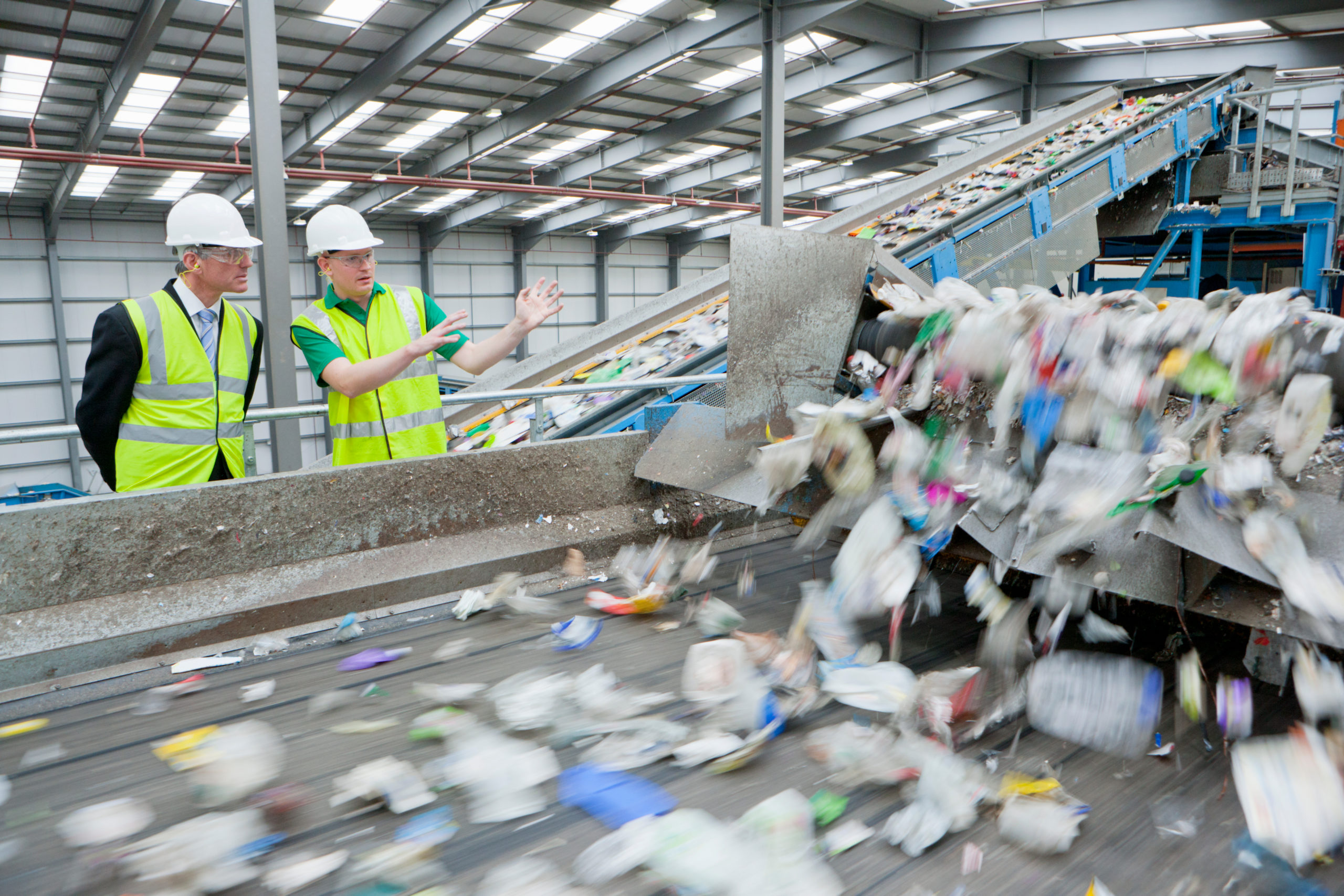International Bottled Water Association | News Release | April 22, 2022
Investing in recycling is a critical step in caring for our planet
 Alexandria, VA – On Earth Day, the International Bottled Water Association (IBWA) is reminding consumers about the importance of recycling and the need for improvements to our recycling infrastructure, as this year’s theme is “Invest In Our Planet.” Everyone can play a role in protecting the future of our planet, which requires people, industry, and government to act, innovate, and implement.
Alexandria, VA – On Earth Day, the International Bottled Water Association (IBWA) is reminding consumers about the importance of recycling and the need for improvements to our recycling infrastructure, as this year’s theme is “Invest In Our Planet.” Everyone can play a role in protecting the future of our planet, which requires people, industry, and government to act, innovate, and implement.
“The bottled water industry has always advocated for improved recycling rates and infrastructure,” says IBWA Vice President of Communications Jill Culora. “By updating recycling equipment and technologies, material recovery facilities (MRFs) can improve the sorting and processing of recyclable material. Government and industry investment in recycling infrastructure advancements is critical if we are to lessen human impact on the environment.”
“Recycling has become increasingly important in recent years because single-serving sized PET bottled water containers, as well as HDPE plastic bottled water containers, are highly recycled. They are also highly sought by material reclaimers who have many industries wanting to purchase recycled plastic to make new products.”
“Several industries have pledged to use more recycled content in their product containers—a practice bottled water companies voluntarily implemented many years ago. The success of those efforts relies heavily on consumers doing their part by recycling their empty bottled water containers. Taking the simple step of placing recyclable materials in the recycling bin provides manufacturers with more of the material they need to provide the recycled-content products consumers want. Making new bottles from old ones lessens the need to introduce virgin resin into the supply chain,” says Culora.
IBWA is a supporter of the Recycling Infrastructure and Accessibility Act (RIAA), new legislation that would create a pilot program to help fund recycling programs in underserved areas.
Promoting transparency, IBWA also backs the Recycling and Composting Accountability Act (RCAA). This legislation would require the U.S. Environmental Protection Agency (EPA) to collect and distribute data on recycling and composting rates across the country to provide an accurate reflection of both national and state-level performance.
RIAA and RCAA were recently introduced for consideration to the U.S. Senate. The passage of both bills would be a victory for consumers, as well as the bottled water and the recycling industries, says Culora.
In addition to efforts on the legislative front, IBWA also continues to promote curbside recycling through its partnerships with organizations such as The Recycling Partnership (TRP) and Keep America Beautiful (KAB). Through these partnerships, IBWA obtains valuable research and recycling data we can use to educate consumers about recycling facts via our social media platforms. One such fact: Of all PET containers in U.S. curbside recycling bins, bottled water accounts for 52 percent (soda accounts for only 16 percent).
“We encourage consumers to always recycle their empty plastic containers with the caps on,” says Culora. “The bottled water industry continues to work hard to make more sustainable product packaging, which will lessen the impact on the environment. Together we can help improve the health of our planet in the long run, but that can happen only if each of us does our part.”
PET plastic bottled water containers are a valuable resource because they are 100% recyclable and can be recycled and used over and over again. But that is not the case for all plastics. Many types simply cannot be recycled (e.g., kitchen plastic wrap, exterior packaging of most consumer goods, grocery bags, squeezable food containers, garment bags, snack food bags, and plastic cups, straws and utensils, and most takeout containers) and therefore have a much greater negative impact on the environment.
Bottled water’s recyclability distinguishes it from other common plastic products that are truly “single-use,” such as non-recyclable plastic items (e.g., straws, cutlery, and plates); food; and goods packaging (e.g., film, heat-sealed and multi-layered laminate bags) and containers (e.g., non-PET, HDPE, and PC bottles and tubs). In addition, PET plastic bottled water containers are the most recognized by consumers as being recyclable and is likely why they are the most recycled containers in curbside recycling programs in the United States.
So, what can people do to help reduce the impact of plastic on the environment?
- Shop wisely. Buy products that are packaged in 100 percent recyclable containers and packaging.
- Purchase items that include recycled materials.
- Make a pledge to always recycle all your recyclable plastic food and beverage containers.
Another resource IBWA uses to promote recycling is its #PutItInTheBin campaign. IBWA, along with its partner organizations, share pro-recycling images and messaging on social media. These posts and images are available at putitinthebin.org.
More information about bottled water and recycling can be found at www.bottledwater.org.
###
Media Contact:
Jill Culora
jculora@bottledwater.org
703.647.4609
The International Bottled Water Association (IBWA) is the authoritative source of information about all types of bottled waters, including spring, mineral, purified, artesian, and sparkling. Founded in 1958, IBWA’s membership includes U.S. and international bottlers, distributors and suppliers. IBWA is committed to working with the U.S. Food and Drug Administration (FDA), which regulates bottled water as a packaged food product, to set comprehensive and stringent standards for safe, high-quality bottled water products.
In addition to FDA regulations, IBWA member bottlers must adhere to the IBWA Bottled Water Code of Practice, which mandates additional standards and practices that in some cases are more stringent than federal and state regulations. A key feature of the IBWA Bottled Water Code of Practice is a mandatory annual plant inspection by an independent, third-party organization.
